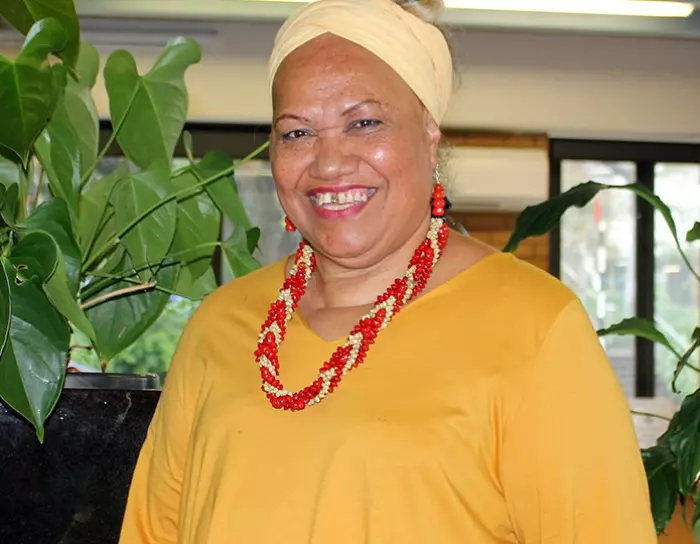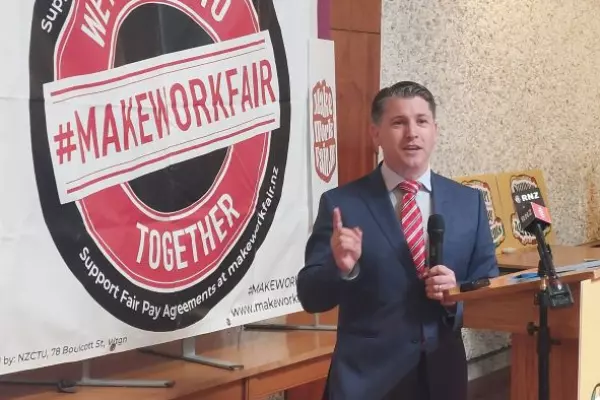When community development specialist Bernadette Pereira first came to New Zealand, she brought with her an impressive resumé.
She’d spent seven years based in New Caledonia heading the Pacific Women's Development Programme for the South Pacific Commission – a role that saw her representing 22 island nations and travelling to the UN four times as part of the lead up to the World Conference on Women in Beijing.
But when she and her husband moved to Auckland and went to Work and Income to enquire about jobs, all they were offered were positions on factory floors.
“I soon realised that there was no point,” she says. “Even if you're trained and you're qualified, it's really hard for you to enter the workforce here.”
“All the jobs that were thrown at me and my husband, day in, day out, were blue collar factory jobs. My skills were made for something better.”
It’s an experience many Pasifika people – especially women – face in New Zealand, says Pereira, who is originally from Samoa. She eventually found a job more aligned with her qualifications and background through her own social channels, but she says the clustering of Pasifika women in low paid, low skilled jobs has resulted in some of the largest and most shocking pay gaps in our society.
Pasifika women are, on average, the lowest paid people in the national workforce. According to Stats NZ, for every dollar a Pākehā male makes, a Pasifika woman makes 73 cents. It’s a similar case with Māori men and women – 80 cents and 77 cents respectively to every dollar a Pākehā makes.
That's why, alongside the campaign to improve gender pay equality in New Zealand, there’s a growing movement to close the ethnic pay gap by encouraging employers to look at and report the pay discrepancies between their employees.
The Human Rights Commission is conducting an inquiry to better understand why the Pacific pay gap exists and how it can be closed, focusing specifically on the manufacturing, health and construction sectors.
Pereira agrees that the first step to fixing pay gaps is for employers to identify and publicly report them. However, based on her experience, she says another crucial step for employers to educate themselves on the cultural nuances of their Pasifika workforce.
Respect for authority
She says a Pasifika worker’s reverence for authority can be incongruent with European-centric businesses, where competitiveness and tenacity are rewarded above quiet obedience. In an environment with little cultural understanding, she says, it can be easy to perceive the more reserved Pasifika workers as unambitious and for pay gaps to occur.
“Pasifika workers – they're very loyal, first and foremost. They have a deep trust in the system. But the system wants you to compete.”
“Even when Pasifika are poorly paid, many don’t speak out. They want the job, they need the job so that they can provide for the needs of their households and their families and their aiga.”
She believes these cultural differences mean Pasifika women can be bypassed for promotion in favour of an equally productive but more outgoing Pākehā worker, which cumulatively contributes to the ethnic pay gap in some companies.
Pereira says it can also lead to horizontal pay gaps, where people in the same or similar positions are paid differently based on social factors that come naturally to those of European backgrounds.
“That's why it's really important that there's transparency. If we're all working on the factory floor, or if we're all cleaners or orderlies in the hospital, we should all know what our colleagues are making.”
Pay equity
The Equal Pay Act 1972 provides a process for employees to make equal pay claims, where there are pay discrepancies between men and women for the same role.
The Act’s 2020 amendment also addresses gender pay equity by providing a process for individual employees to raise and resolve sex-based claims of pay undervaluation for roles that are similar or require the same skill level.
While the Act does not provide a process of ethnic pay discrimination, the Public Service Commission published guidance on how public agencies can identify and measure Māori and ethnic pay gaps among their employees.
It advises public agencies to make sure ethnicity is not a factor in salaries for similar roles, in the same way they would ensure gender is not an influencing factor.
According to Tama Potaka, chief executive of Tribal Trust, vastly different pay for the same or similar roles is not acceptable. However, he says it’s natural to have small gaps in salaries for similar roles, especially in private companies, due to the complex range of performance factors that dictate renumeration.
“You might have two people with very similar skills doing the same job, but one may work or perform better than the other one. Now, should there be incentives for that person? Probably.
“Because if you've got someone who's performing consistently, more productively, more effectively than others, then that person probably should be rewarded with incentives, or bonuses, or whatever it might be.”
However, he says the range should be around 5%, and employers need to be transparent about it.
“I think that the key issue here is information, and the transparency of information.”

Gender pay gap reporting is gradually becoming more mainstream and is done voluntarily by a growing number of companies, but ethnic pay gap reporting is more complex because of the administration involved.
It’s relatively easy for a company to pull gender data from payroll information. Ethnicity information, on the other hand, is harder to come by.
Because of this, Potaka believes there’ll be some organisations that would prefer not to carry out ethnic pay gap reporting, whether voluntary or mandatory.
“A lot of organisations don't ask for ethnic information. I think there'll be a number of parties who do not want mandatory reporting because they will have to change their internal processes.”
However, he says it could eventually be viewed as just another metric in corporate social governance principles, which already see businesses reporting information such as their greenhouse gas emissions. This level of transparency can enhance a company’s image and make it a more desirable destination for talent, he says.
In 2019, Westpac conducted a voluntary audit of its pay gaps and found that male employees were paid, on average, 30% more than female employees, mostly because 62% of women held lower paid roles, while men held more higher paid middle-to-upper management roles.
As a result, Westpac has committed to hiring more women for higher-paid positions with the aim of achieving a 50% balance by 2025.
While this could close the gap within Westpac, Potaka says this type of selective hiring policy is not practical for many businesses, especially when talent is so scarce.
“I think that's a conceptual dream for many people. I think you have to be really careful around mandating or requiring certain levels of gender or ethnicity at specific levels of organisations,” he says.
However, what’s far more crucial, Potaka says, is for employers to recognise and eliminate any unconscious bias that could be subliminally influencing their hiring decisions.
Unconscious bias
“What I do recognise, on the other hand, is that some very severe and deep unconscious bias exists across Aotearoa and part of that is the nature in which colonisation and assimilation were delivered, particularly with negative impacts on Māori over the last 200 years.”
“Does that mean that people are all racist or discriminatory? No, not at all. But it means there is a real urgency to raise awareness around the unconscious bias that often influences decision making right through from asset allocation to HR and recruitment and remuneration of workers.
Rather than simply ticking boxes by hiring certain workers to meet a target, Potaka says employers can familiarise and embrace concepts such as manaakitanga – in same way Bernadette Pereira implores employers to close their gaps by educating themselves culturally with their Pasifika workforce.
Potaka says it also helps not to always view talent through a Eurocentric lens, where formal university education – disproportionately attained by Pākehā – is a prerequisite to employment and favoured over other skills.
“That’s another reason for the pay gaps – how we perceive the value of education and qualifications in any role. If you don't have a certain degree, then you can't get a certain job remuneration range.
“I’m not talking about specialist jobs. If you don’t have a degree in surgery, don’t be a surgeon. But for other jobs, it’s possible that someone without that degree might do the work a lot better.”













